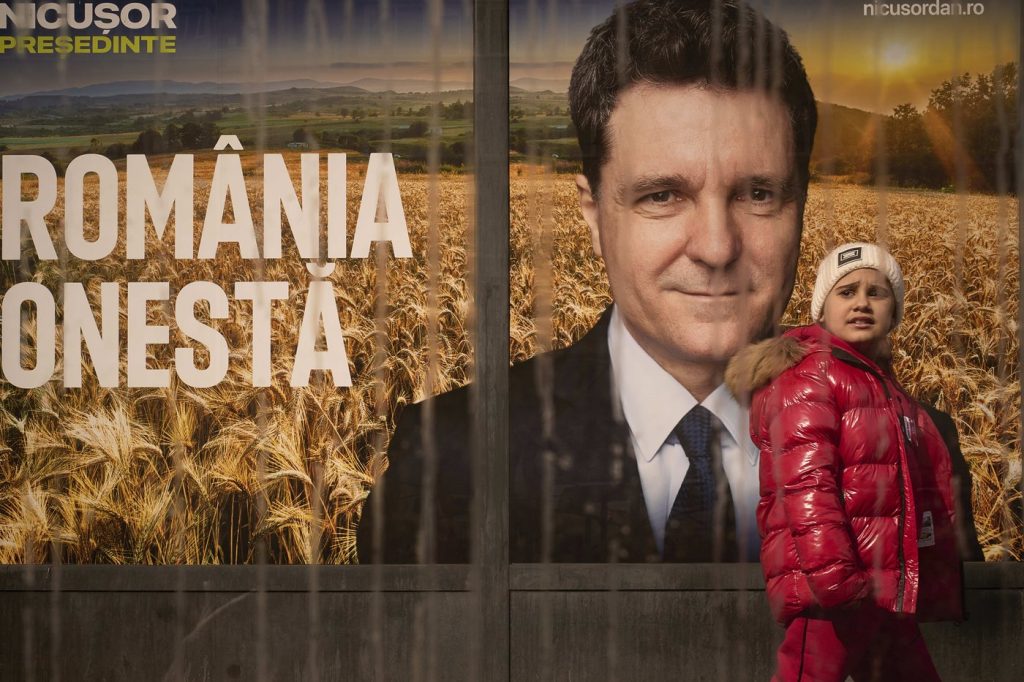BUCHAREST, Romania (AP) — Romania is set to hold a high-stakes presidential election rerun next month, following last year's annulled vote that caused the country's most serious political crisis since 1989. The Constitutional Court of Romania invalidated the previous election on December 6, after far-right outsider Calin Georgescu emerged as the frontrunner in the first round. The court's ruling was based on allegations of electoral violations and a Russian campaign supporting Georgescu, who is now under investigation and barred from participating in the rerun. Moscow has denied any interference in the electoral process.
Elena Lasconi, who finished second in last year's election and is running again, stated, "What happened last year was very serious and at that time, completely anti-democratic.” She believes that the annulment of the election was not justified and emphasizes that the event has shaken public trust in the political system. After decades of striving to establish strong democratic institutions, the annulment of the election has left many Romanians disillusioned with state institutions.
Septimius Parvu, an expert in political affairs, noted that public trust in political entities and institutions is at an all-time low, creating a long-term impact on democracy in Romania. Public skepticism persists, as many citizens express doubts over whether the upcoming election will be fair, feeling that their votes do not carry weight.
Despite the challenging political landscape, some parties are risking fragmentation. Lasconi's party, the Save Romania Union (USR), recently withdrew its support for her in favor of incumbent Bucharest Mayor Nicusor Dan, citing Dan's stronger chance of winning the presidency. Lasconi condemned her colleagues as "coup plotters," highlighting the chaos that has ensued since the previous election debacle.
Cristian Andrei, a Bucharest-based political consultant, pointed to widespread discontent with the political class as a contributing factor to the complex electoral climate. As demonstrated by the support for Georgescu, the rise of far-right sentiments in Romania has raised concerns in Brussels about the potential for foreign interference in European elections.
George Simion, leader of the far-right Alliance for the Unity of Romanians (AUR), has emerged as a prominent candidate following Georgescu's disqualification. AUR has capitalized on anti-establishment sentiment, and Simion's candidacy is seen as a challenge to Europe’s unity amid ongoing tensions in neighboring Ukraine. Simion's stances and remarks regarding EU aid to Ukraine have drawn criticism, amplifying fears of increased radicalization within the Romanian political landscape.
As Romania approaches the rerun of the presidential election — slated for May 4 — with a potential runoff on May 18 if no candidate secures over 50% of the votes, significant political figures are on the ballot. Apart from Dan and Lasconi, other notable candidates include Crin Antonescu, representing the governing coalition, and Victor Ponta, a former prime minister advocating a "Romania First" agenda. Polls indicate that Simion may face off against either Dan, Ponta, or Antonescu in a runoff.
Social media's impact has also come under scrutiny in the wake of the annulled election, with declassified intelligence pointing to foreign interference through platforms like TikTok. The European Commission has launched an investigation to assess compliance with EU regulations regarding electoral integrity. TikTok has claimed to have dismantled coordinated influence networks targeting Romanian voters, as concerns over the platform’s role in manipulating election discourse were highlighted.
The political turbulence has led to public protests and widespread uncertainty among voters. Bucharest resident Octavian Frecea remarked on society's division, emphasizing Romania's reliance on external political and economic influences. As the country gears up for what may be its most critical election since 1989, the outcome holds implications beyond the presidency, potentially serving as a referendum on the state of Romanian democracy.










